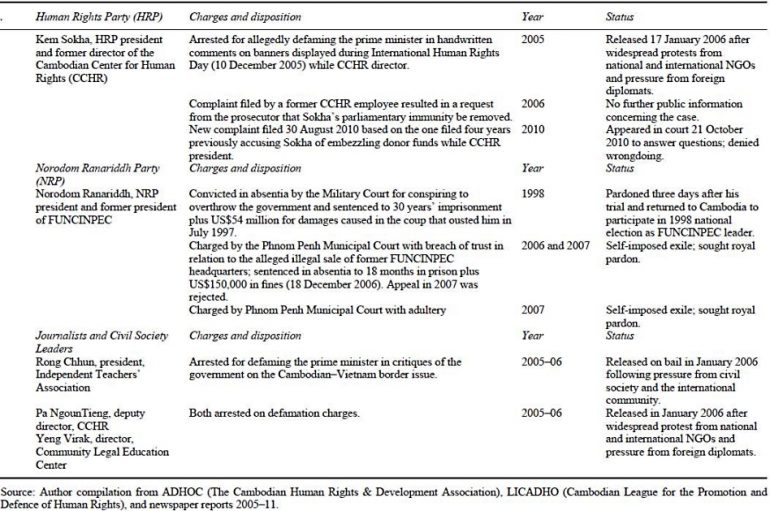All posts tagged The Judicialization of Politics in Asia

Cambodia’s Judiciary Heading for political judicialization? Kheang Un and Sokbunthoeun So Introduction For some scholars, certain international justice mechanisms can contribute to judicialization at the national level. Hirschl (2008) has proposed that judicialization of mega-politics may account for the growing phenomenon of judicial activism, embracing ‘everything political’, from ‘judicial scrutiny . . . Read more
Leadership, Law, and legitimacy Reflections on the changing nature of judicial politics in Asia Haig Patapan Constitutional courts and supreme courts of final appellate jurisdiction are unique institutions. As the principal courts in the legal hierarchy of the state, they represent the apex of the law, the fundamental institution that . . . Read more
Malaysia Limited and intermittent judicialization of politics Chandra Kanagasabai Introduction This chapter argues that the ‘judicialization of politics’, described by Hirschl (2006: 721) as ‘the ever accelerating reliance on courts and judicial means for addressing core moral predicaments, public policy questions and political controversies’ has seen only limited and intermittent . . . Read more
From judicialization to politicization of the judiciary The Philippine case Alejandro N. Ciencia, Jr. Introduction The drafters of the 1987 Constitution saw creation of an independent and empowered judiciary as Philippine society’s main defense against authoritarianism and corruption. For the delegates to the post-Marcos 1986 Constitutional Commission, if the goals . . . Read more
The judicialization of politics in Pakistan Charles H. Kennedy In its 63-year independence Pakistan has had a very complicated and fluid constitutional history (see, e.g., Khan 2001 and Newberg 1995). It has had five formal constitutions, one inherited at independence (the Government of India Act of 1935, modified by the . . . Read more
Indonesia’s Constitutional Court Conservative activist or strategic operator? Simon Butt For three decades under Soeharto (1966–98) Indonesia was an authoritarian state. There were no effective checks, institutional or democratic, on the exercise of government power. Formally, the state was bound by the 1945 Constitution, but the judiciary lacked power to . . . Read more
China’s Supreme People’s Court within the ‘political-legal System’ Shumei Hou and Ronald Keith Introduction Hirschl’s ‘judicialization of politics’ argues that in Asia within the last two decades, court intervention into ‘deadlocked politics’ is ‘less exceptional’ and that courts are asserting independent political personality through judicial review. This approach looks for . . . Read more
Thailand Judicialization of politics or politicization of the judiciary? Björn Dressel Introduction Although a variety of patterns of judicialization can be identified in Southeast Asia, arguably it is in Thailand that the judiciary has been most formidably transformed. Pulled into the political fray most recently during the crisis that has . . . Read more
